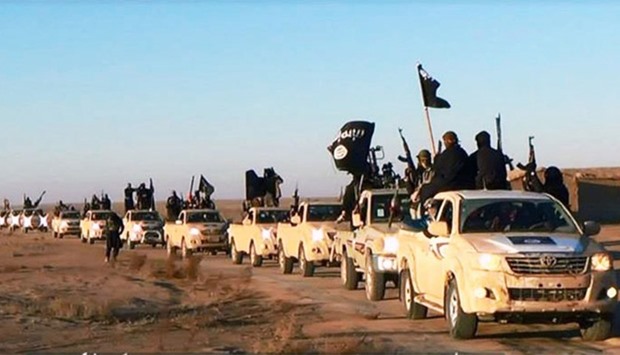The Pentagon has previously been wary of giving body counts, but Wednesday's figures come as officials hope to portray the IS group as being on the defensive after the jihadists suffered a series of setbacks -- including last week's loss of the Iraqi city of Ramadi.
"In December, we estimate approximately 2,500 enemy fighters were killed in coalition air strikes across Iraq and Syria," Baghdad-based military spokesman Colonel Steve Warren told Pentagon reporters.
He said that since coalition air strikes began in August 2014, the IS group had lost as much as 22,000 square kilometers (8,500 square miles) -- or about 40 percent -- of the territory it once held in Iraq, and about 10 percent, or 2,000 square kilometers, of the land it claimed in Syria.
"We believe that ISIL is now in a defensive crouch," Warren said, using an alternative acronym for the jihadists.
"Probably in May was really when they reached their culminating point of offensive operations. Since then all they have really managed to do is lose ground."
When the size of the so-called caliphate the IS group proclaimed 18 months ago was at its largest, Iraq accounted for a slightly bigger part of it than Syria.
A variety of Iraqi forces have reclaimed major urban centers, including Ramadi.
Warren said several, squad-sized groups of IS fighters remained in uncleared Ramadi neighborhoods. He claimed Iraqi troops had killed 60 IS fighters in the city in just the past 24 hours.
Though the number of slain IS members is significant, the jihadists have been able to fill their ranks almost as fast, especially with disaffected young men from economically and politically crippled Muslim countries in the region.
The United States last year estimated there were between 20,000 to 30,000 IS members operating in Iraq and Syria, and Warren repeated that assessment Wednesday.
Despite suffering defeats, the IS group has pushed for new gains elsewhere, including in strife-torn Libya where the jihadists are trying to seize coastal export terminals.
An ongoing strategy for the anti-IS coalition has been to strike the oil infrastructure the group uses to fund its operation. Warren said the jihadists' oil production has been cut by nearly 30 percent, down from 45,000 barrels per day to 34,000.

